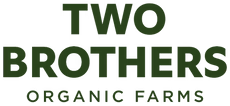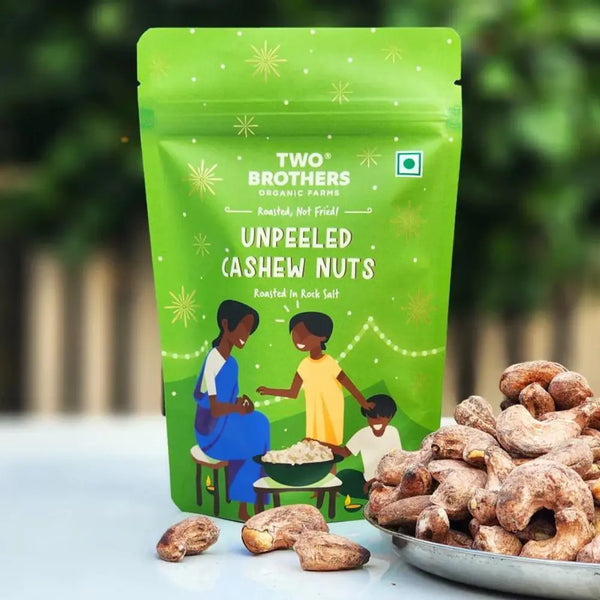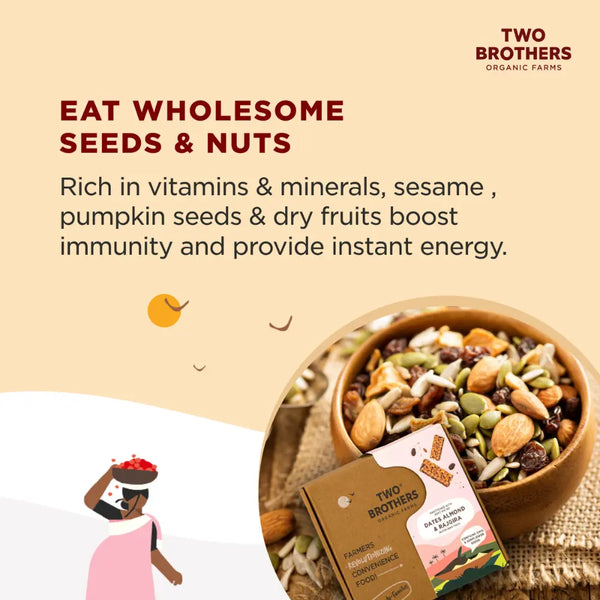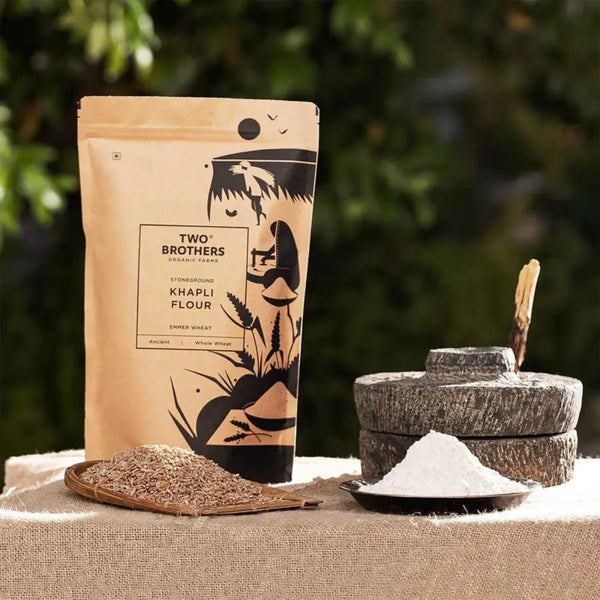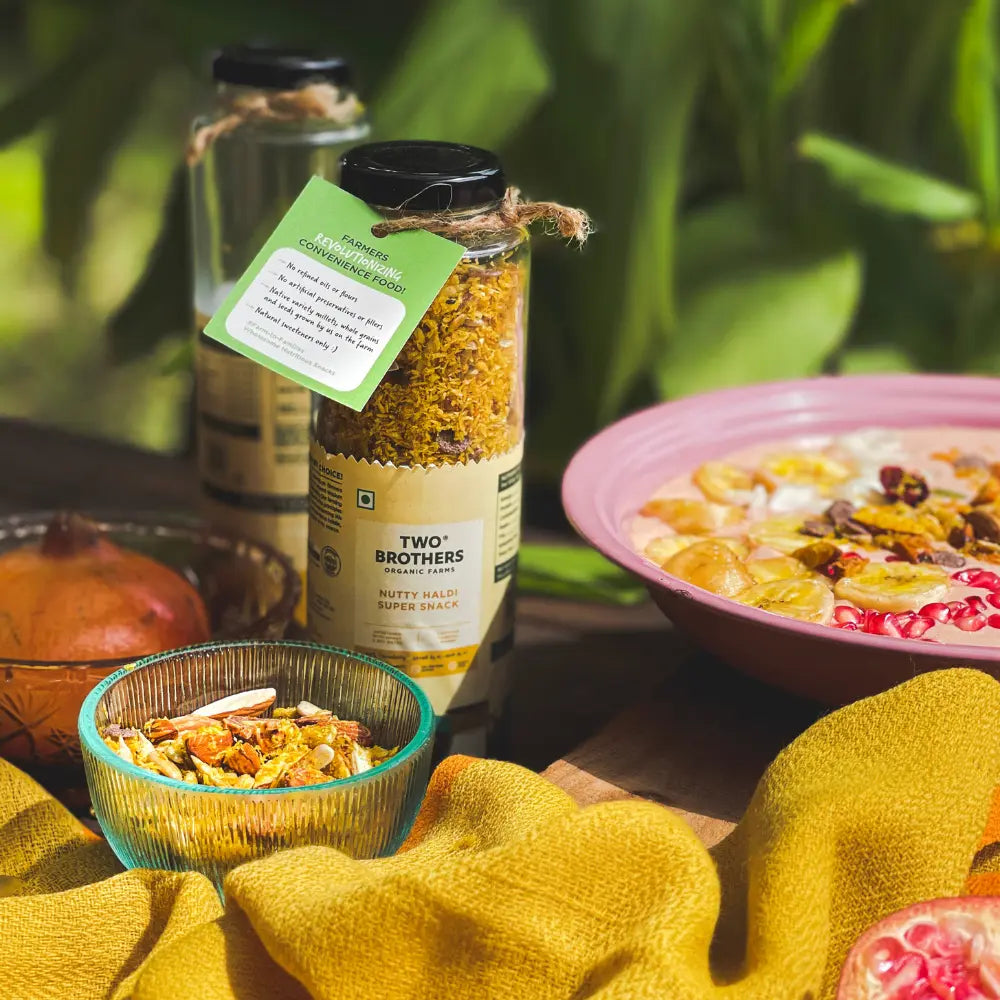Navigating a vegetarian diet while ensuring your iron levels stay on point might feel like a culinary maze, but fear not! The key isn't in ditching your plant-based lifestyle; it's all about embracing the wealth of knowledge about iron-rich foods.
Iron plays a crucial role in the production and transportation of blood in your body, the most important fluid. It's essential to monitor its production, as lesser than required iron intake can lead to iron deficiency.
But don’t you worry; the days of feeling fatigued and dizzy on standing up suddenly are gone. We've curated a list of important vegetarian foods rich in iron, from spinach to nuts and seeds.
But before we dive into the list of iron-rich foods, let’s learn why your body even needs iron in the first place!
|
Table of Content |
|
Why is Iron Important for Your Body?
Iron is essential for the following reasons:
Haemoglobin Synthesis
Iron is a crucial component for the synthesis of haemoglobin, the protein in red blood cells responsible for transporting oxygen.
Oxygen Transport
Haemoglobin, formed with iron, carries oxygen from the lungs to tissues and organs, ensuring proper oxygen supply for cellular functions.
Cellular Respiration
Iron plays a vital role in cellular respiration by aiding in the transport of electrons within the electron transport chain. This process, crucial for ATP (energy) production, relies on iron-containing proteins like cytochromes to drive cellular energy production.
Energy Metabolism
Essential for various enzymes involved in energy metabolism, iron influences the conversion of nutrients into energy for the body.
Immune Function
Iron supports a healthy immune system by aiding in the production of white blood cells, which play a crucial role in defending the body against infections.
Now that you’re aware of why you need iron, let’s learn when you need it.
Symptoms of Iron Deficiency
Iron deficiency is the term used to describe abnormally low levels of iron in your body. If you have the following symptoms, maybe consider taking a visit to your doctor soon!
- A persistent feeling of fatigue or weakness.
- Pale skin.
- Shortness of breath.
- Dizziness on standing up suddenly.
- Cold hands and feet.
- Brittle nails.
There can be other symptoms as well; therefore, it is always important to consult with your physician before changing your diet. Now, let's explore some natural iron-rich foods that are perfect for vegetarians. Ready for this flavorful journey?
While you might be consuming 'iron-rich' foods, the quantity of iron taken won't matter unless you consume the right kind of iron.
According to the Stanford Blood Center, the non-heme iron mostly found in vegan food is not easily absorbed. Check out the iron content present in some common everyday foods next!
Nutritional Chart for Iron-Rich Foods For Vegetarians
Check out this chart to learn about the content of iron in the following foods!
Food |
Iron Content (per 100g) |
|
Nuts |
|
|
Seeds |
|
|
Spinach |
|
|
Garden Cress |
|
|
Legumes |
|
|
Whole Wheat |
Are you wondering about other nutritional benefits present in these foods? Check out a detailed description for each below!
Top 6 Iron-Rich Foods for Vegetarians
1. Nuts:
These seemingly small additions to your cereal may sound unnecessary, but nuts are one of the richest sources of iron.
Iron-rich: Nuts, such as almonds, cashews, and hazelnuts, are abundant in iron—a vital mineral essential for oxygen transport in the blood.
Vitamins and Minerals: In addition to iron, nuts also contain essential nutrients like magnesium and vitamin E, promoting overall health.
Metabolism: Nuts have been associated with improved metabolic health, including better insulin sensitivity, which is crucial for preventing type 2 diabetes.
Simple inclusion: Enhance iron absorption by simply sprinkling chopped nuts, like walnuts or pistachios, onto your morning cereal or yoghurt.
Did you know that the seeds we often discard are a great source of iron? Let’s learn more about them in the next section.
2. Seeds:
Seeds are way beyond their nutty flavour, they are rich in monounsaturated and polyunsaturated fats!
Read on to learn about the other benefits of seeds!
Iron-rich: Seeds of pumpkin, sunflower, sesame, flax, chia, and hemp are rich sources of iron.
Nutrient-Rich: In addition to iron, seeds offer a diverse array of nutrients like zinc, magnesium, and copper, contributing to overall nutritional balance.
Supports Immune System: This nutrient diversity supports various bodily functions, from immune system health to bone strength.
Simple Inclusion: Incorporating these seeds into a fruit salad is a delicious way to boost both dietary fibre and iron intake.
Next up we have the leafy green that Popeye the Sailor loved so dearly - Spinach. Read more below!
3. Spinach:
Spinach is a powerhouse of iron, vitamins, and minerals; read about its benefits below!
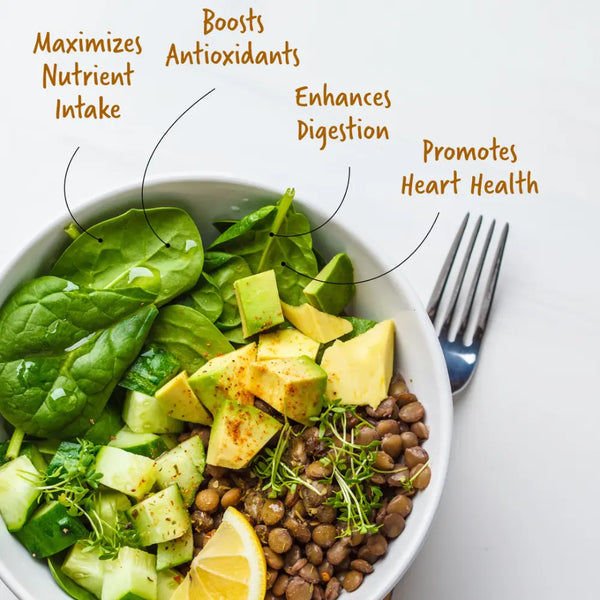
Cognitive Function: Iron, present abundantly in spinach, plays a pivotal role in cognitive function, aiding in the production of neurotransmitters and supporting overall brain health.
Increased Energy: Iron is vital for the formation of myoglobin, a protein that facilitates oxygen storage in muscles, supporting endurance and overall physical performance.
Heart health: Spinach plays a role in maintaining cardiovascular health due to the presence of vitamins (A, C and K) and minerals (iron and magnesium). These support the formation of red blood cells and prevent anaemia.
Simple Inclusion: Enhance salads with nutrient-packed spinach leaves, adding a vibrant burst of colour, flavour, and essential iron to your meals.
Our next item lives up to its name and is full of all the nutrients in a green garden!
Read along to learn about its benefits!
4. Garden Cress:
Garden cress, also known as ‘Halim’, is not only rich in iron but also a variety of nutrients, look at them below!
Iron-rich: Garden cress provides a natural and easily absorbable form of iron, facilitating the production of red blood cells. This is essential for maintaining healthy blood circulation and preventing conditions like anaemia.
Vitamin Packed: Despite its small size, garden cress is a nutrient-dense microgreen, loaded with vitamins such as A, C, and E, contributing to overall immune system support and skin health.
Antioxidant-Rich: Abundant in antioxidants, garden cress helps combat oxidative stress, protecting cells from damage caused by free radicals and supporting long-term health.
Simple Inclusion: Sprinkle garden cress on salads, and sandwiches, or blend into smoothies for a peppery kick, boosting flavour and nutrition effortlessly.
Learn more about legumes in the next section! Legumes are eaten as a staple food in many countries, and for good reason! They’re full of micronutrients!
5. Legumes:
Legumes offer fibre, iron, and essential nutrients, we've mentioned some of their benefits below, don’t skip anything!
Iron-Rich: Legumes, including lentils, chickpeas, and black beans, are excellent sources of non-heme iron, a crucial mineral for red blood cell formation.
Fibre-Rich: Legumes are packed with dietary fiber, promoting digestive health and preventing constipation. The soluble fibre in legumes also helps regulate blood sugar levels and supports heart health.
Weight Management: The combination of protein and fibre in legumes promotes a feeling of fullness, aiding in weight management. It also contributes to reduced overall calorie intake, supporting weight loss or maintenance.
Simple Inclusion: Add a cup of cooked chickpeas or lentils to salads, soups, or stir-fries. Their versatility and iron content enhance everyday meals, providing a quick and nutritious boost to your diet.
Moving on, let’s talk about a better alternative to - khapli wheat. It is rich in fibre and other nutrients, find out more about it below!
6. Khapli Wheat:
Unlike regular wheat, khapli wheat is acquired by grinding the entirety of the wheat kernel, therefore retaining fibre and other essential nutrients.
Fights Iron deficiency: Khapli or Emmer wheat may help reduce iron deficiency and plays a pivotal role in energy metabolism. Moreover, it contributes to the production of ATP, the body's primary energy currency.
Nutrient Rich: Khapli wheat contains essential nutrients, including B vitamins, iron, magnesium, and zinc, providing a well-rounded nutritional profile. These nutrients play crucial roles in energy metabolism, immune function, and overall cellular health.
Colon Health: The fibre in whole wheat supports colon health by promoting regular bowel movements and contributing to a healthy gut microbiome. Khapli wheat has been associated with a lower risk of developing colon cancer.
Simple Inclusion: Swap refined flour with whole wheat flour in your daily meals. Enjoy whole wheat bread, pasta, and tortillas for a nutrient-rich boost, supporting digestive health, heart function, and overall well-being.
Consider these 6 healthy adjustments to support a gradual increase in iron levels in the body.
Still, got an itchy brain? Check out these frequently asked questions (FAQs)!
FAQ: Iron-Rich Foods for Vegetarians
How much iron do I need daily?
The recommended daily iron intake varies based on factors like age and gender. For adult males and postmenopausal females, it's around 8 mg, while menopausal females may need up to 18 mg due to menstrual losses. Always consult with a healthcare professional for personalized advice.
Is too much iron bad for your health?
Yes, iron, if consumed in huge amounts, can harm your body. Adverse side effects may range from an upset stomach to constipation and abdominal pain. Therefore, it is advised to consume iron in a limited amount.
Is it safe to take iron supplements daily?
Yes, you can take 17 mg or less of iron supplements daily, and it is not likely to cause any harm. However, it is advisable to stick to foods that naturally have a higher iron content rather than taking iron supplements.
What is dietary iron?
Dietary iron is a crucial mineral found in food that the body absorbs for various functions, such as oxygen transport, energy production, and overall cellular health.
Conclusion:
In conclusion, prioritizing iron-rich foods is pivotal for vegetarians to combat deficiencies and maintain optimal health. Given that plant-based iron is less readily absorbed, the importance of ensuring sufficient intake is amplified for vegetarians to support blood circulation and energy production.
Embrace a diet enriched with nuts, seeds, spinach, garden cress, legumes, whole wheat, and sesame seeds to naturally boost iron levels. Regular consumption of these vegetarian sources ensures a holistic approach to combating anaemia and fatigue.
Remember, balance is key, and it's wise to consult with healthcare professionals. Elevate your well-being with nature's nutrient-rich gifts. Explore the diverse range of natural options from Two Brother's Organic Farms for enhanced iron-rich foods and vegetarian options.
